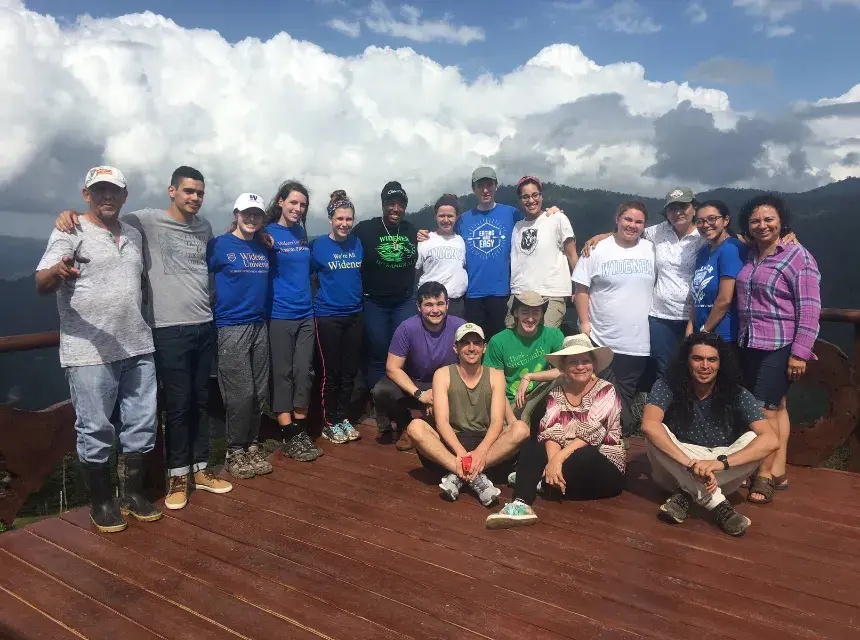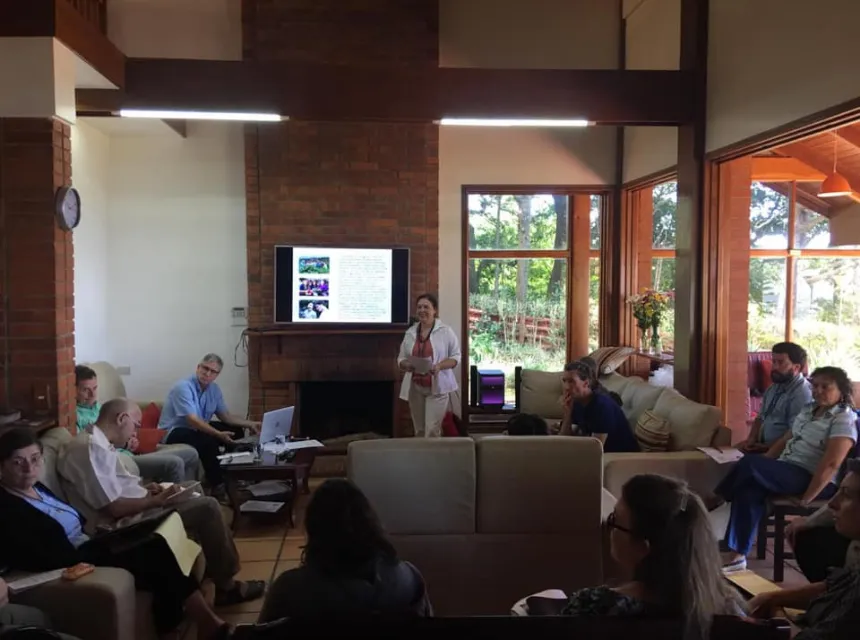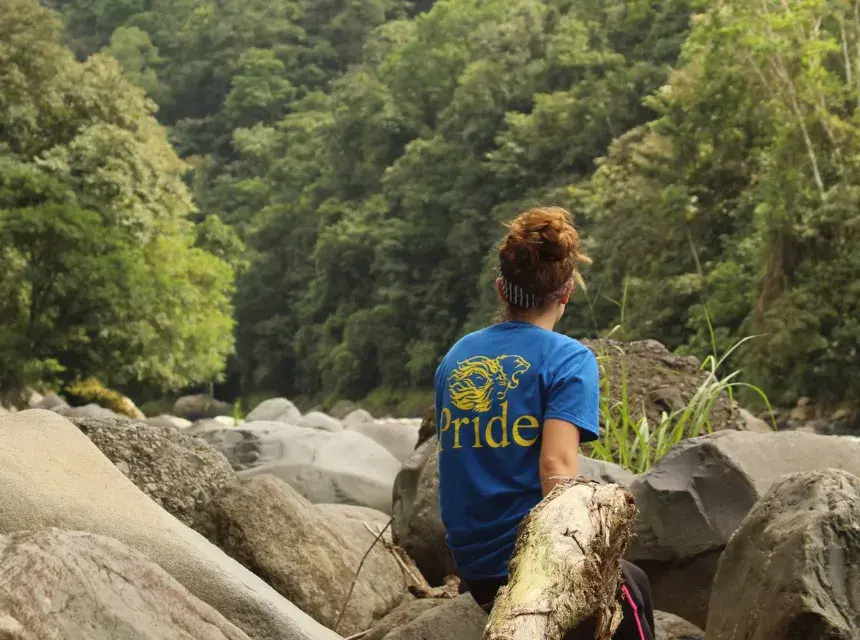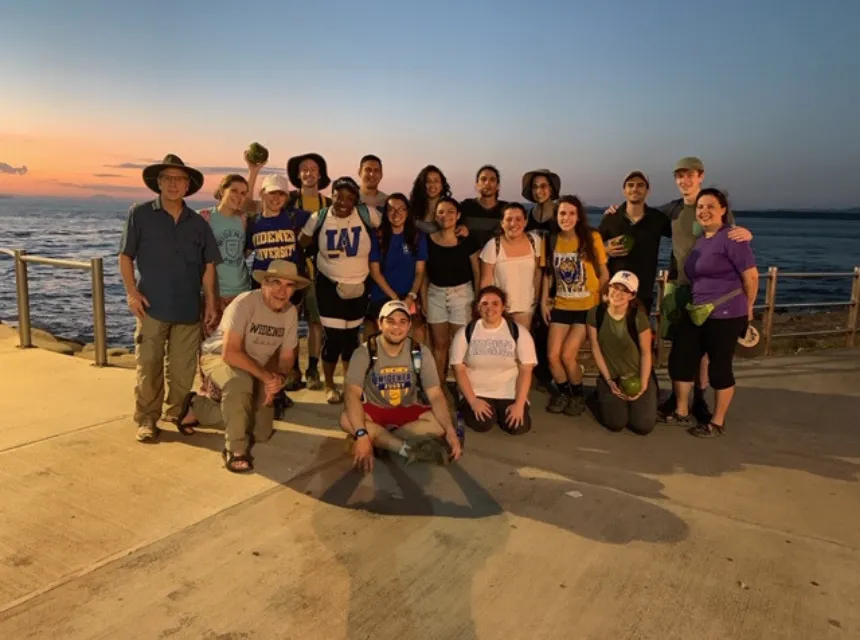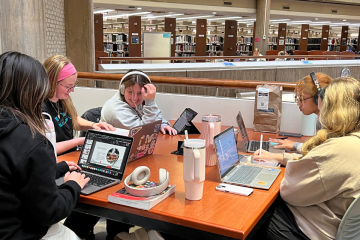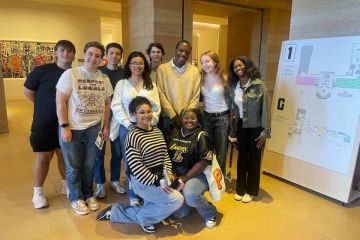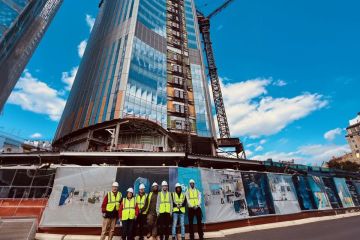Students Learn Across Cultures in Costa Rica

When sophomore Grace Fischer signed up for a winter break trip to Costa Rica, she was excited to travel internationally for the first time, learn about coffee production and improve her Spanish language skills.
But the exchange trip ended up being so much more than that. It transformed her into a global citizen with the ability to form bonds that cut across disciplines and cultures.
“This program was so unique,” the Spanish and social work major said. “I loved learning about the Costa Rican culture, and then having our partners [from Universidad Nacional de Costa Rica (UNA)] come here to learn about our culture.”
Centering on the prominent role of coffee in both universities and countries, this interdisciplinary, cross-cultural exchange allowed Widener students to travel to Costa Rica and Costa Rican students to travel to Widener.
“These two intense experiences will probably be what defines these students’ university careers for the rest of their lives,” said Professor of Spanish Beatriz Urraca, director of Gender, Women and Sexuality Studies.
The exchange arose last year when Professor Stephen Madigosky, chair of Widener’s Department of Environmental Science and Sustainability, and Urraca secured one of nine 100,000 Strong in the Americas Innovation Fund grants.
The grant, sponsored by Santander Bank, was established through a public-private sector collaboration meant to inspire U.S. universities and colleges to team up with higher education institutions in Latin America, the Caribbean and Canada to build partnerships that increase student exchange.
The two universities are well on their way to establishing a long-term collaboration around issues of sustainability and intercultural competence skill development. — Stephen Madigosky
Each of the trips was packed with the kind of insider, behind-the-scenes experiences that only come from having strong relationships with people in a particular country.
For example, the UNA students didn’t just eat lunch in Reading Terminal Market in Philadelphia or tour the Penn Museum; they got to learn about the history and management of the market from its assistant manager and learn about the link between the origin of writing in ancient Sumer and agricultural societies from the museum’s deputy director. They visited facilities where agricultural products are imported, stored, packaged and marketed so they could see where Costa Rican coffee ends up getting ready for the consumer market.
The Widener students experienced the same insider treatment in Costa Rica, as the UNA students and faculty put them to work picking coffee in the university’s fields, accompanied them as they talked to officials setting sustainable policies for the country, and practiced their language skills in everyday settings.
“There is nothing I can do in my classroom at Widener teaching Spanish that comes close to what happens in the bus when all the students are mixed together and are trying to figure out how to communicate in different languages,” Urraca said. “Those are the things they will always remember.”
The students, who were each paired with a student from the other university, agreed these bonds were life-changing.
“I came home with 15 new friends,” Fischer said.
Ignacio Salazar, an UNA graduate student in international management, agreed, saying these types of cultural exchanges can break stereotypes and create lasting relationships between the universities.
“The science and biology is interesting, but the most important thing is the inter-cultural meetings,” he said. “I appreciate that Widener welcomed us and guided us through experiences that changed our conception of U.S. culture and history.”
While sophomore Lauren Schnell loved meeting new people, she also enjoyed learning about the three components of sustainability – environmental, social and economic – and the way in which Costa Ricans were finding environmentally-friendly ways to grow coffee and other crops while adapting to climate change.
“The highlight of the trip for me, as an environmental science major, was experiencing the rich biodiversity of Costa Rica,” Schnell said. “We saw toucans flying above, an iguana relaxing on the roof, magnificent plants all around. It was so beautiful to see that and learn about the conservation efforts to protect it.”
In addition to the student trips, Widener University held its second symposium on “Interdisciplinary Approaches to Integrating Sustainability and Global Engagement in the Curriculum” at CARES21 in early January.
Led by Madigosky and Urraca, 14 faculty members from colleges and universities in the U.S. and Costa Rica presented and shared interdisciplinary research and curriculum development initiatives that advance global sustainability and international education.

